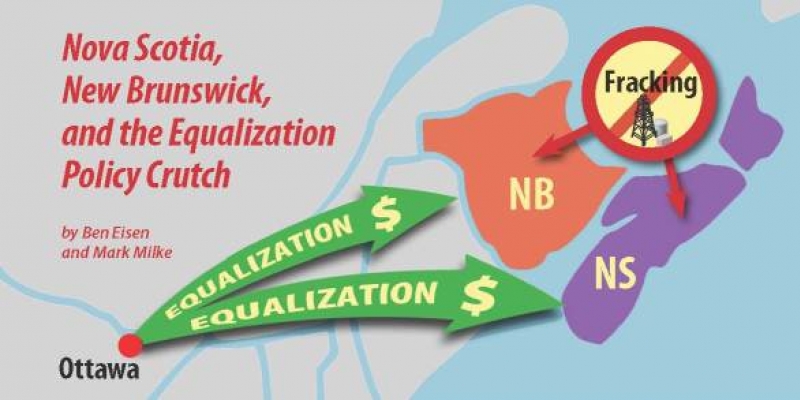Nova Scotia, New Brunswick and the Equalization Policy Crutch

The equalization program creates disincentives in have-not provinces for economic development that would act to increase own-source revenues. The 2007 equalization reform sought to weaken these disincentives for natural resource development by excluding 50 percent of resource revenue from equalization calculations.
It appears that the incentives are still not strong enough for Nova Scotia and New Brunswick. Nova Scotia recently extended a moratorium on hydraulic fracturing and New Brunswick introduced a similar moratorium. In contrast, Newfoundland & Labrador is reaping benefits from conventional oil production. Pennsylvania, too, has benefitted from tapping into the Marcellus gas discovery.
The potential benefits of overcoming the equalization disincentive and allowing resource development for Nova Scotia and New Brunswick include increased private sector investment, stronger job creation, higher incomes, and additional royalty and tax revenues, which would then allow both governments to reduce their noticeably high tax levels.
Authors:
More from this study
Subscribe to the Fraser Institute
Get the latest news from the Fraser Institute on the latest research studies, news and events.



